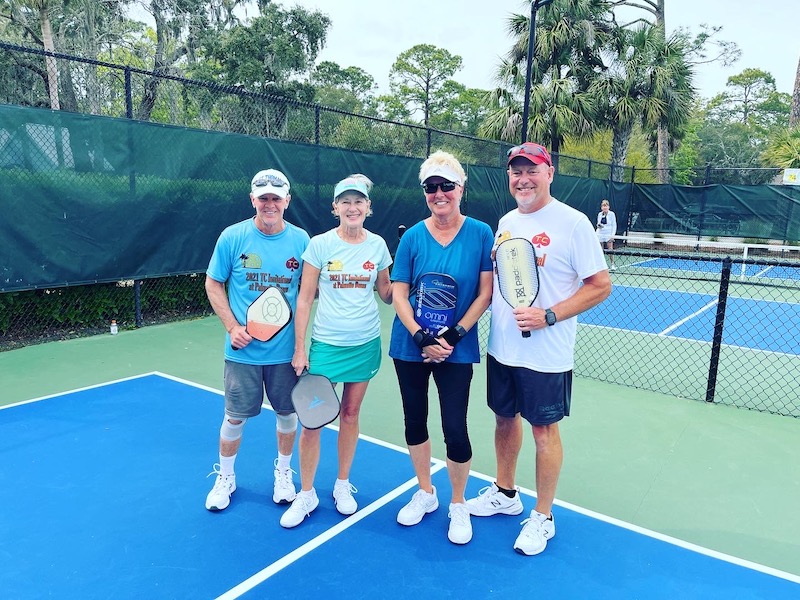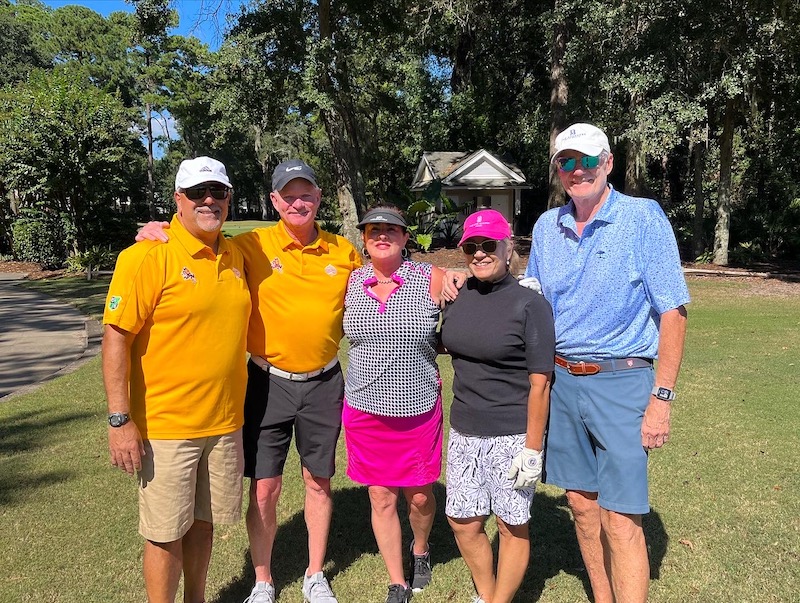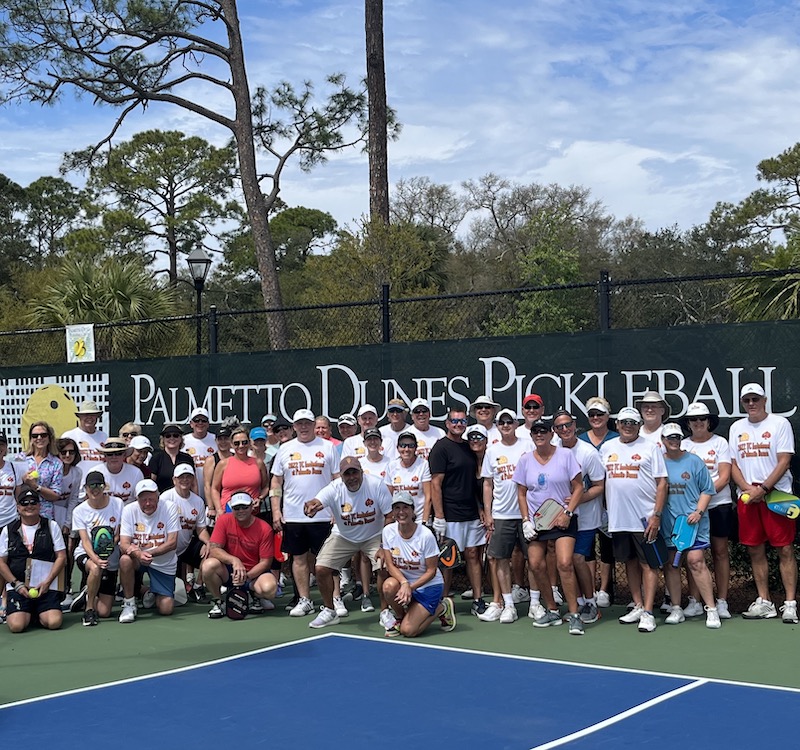Every year on Hilton Head Island, among all the pickleball pandemonium, one tournament in Palmetto Dunes aims to quietly, surely save a life.
In 2011, island resident Bob Chillemi lost his son TC, a student at Arizona State University at the time, in a story that would shatter any father’s and family’s heart. And it did. In the aftermath, he realized that left him with more pieces to share with others. And he did.
Chillemi launched the TCASU Fund behind several annual events on opposite ends of the country, one of those happening here on Hilton Head Island, and bringing healing in its wings through sport—a common ground that brings people together, breaks down barriers, and gives people a reason to talk. And they do.

What would TC do
What’s so important about a pickleball tournament? Asked that question, Chillemi answers, “Telling people what happened, and making it possible for them to talk about it too. Drugs and recovery. Years of addiction. People keep things to themselves and lose their lives because of it— lack of information, resources, knowledge. But when we do these tournaments, people come up to me, even friends who have never said anything before, and they’ll share that they’ve had issues and that they appreciate talking about this so straightforwardly and not being scared to say it.”
The seeds of wanting to “do something” were there almost from the beginning. Chillemi says, “There’s no book on how to react after your son dies; it’s up to you, how you feel, what God gives you. God gave me the ability to talk. I’m not shy. I had a particularly bad day after he died and threw out all his Arizona State things. I woke up the next morning and thought, ‘What am I doing?’ More importantly, I thought, ‘What would T.C. do?’ I went back and took the things out of the garbage and thought no, I’m going to do something with this. That’s what TC would do. That’s what I’ve been trying to do since then.”
In anything Chillemi and the organization does, the singular motivation is this: reaching one person. “If I get one person to not go through what we went through—my wife, daughter, or my son—then we did a good job.”

Who is this?
The power of TC’s story as shared by his father keeps reaching “one by one.” A plaque at ASU appeals to students and families faced with substance abuse in hopes that their efforts will “help mitigate future tragedies,” and Chillemi connects the dots between what happens there and the impact on Hilton Head Island. “When I go there, I cry every time, because his picture is there, and his picture does the same thing the tournament does. It stops you, makes you pay attention, and tells you a story—a story of how to survive when something like this happens to your family, God forbid.
“Counselors have told me the story of people who stop when they see his picture and they see he’s them. It’s you, your kid, your friend. He’s the one who never walked into the counselor’s office. But they did, and they still have a chance. Seeing him might get them there. He wasn’t able to do it for himself, but now he’s doing it for them.”
Chillemi details with chilling urgency, “Others who walk into that office can hear and know—be afraid enough, wake up, and avoid that one choice. Maybe they don’t even know the risks or think it can’t happen with just one use. But it can, and one person avoiding one choice turns to a million different colors of lives saved and lived to fruition.”
That was Tuesday
That one multiplies quickly: a golf tournament in Scottsdale and Hilton Head, a speaking engagement in Arizona, pickleball on Hilton Head Island, (March 25 at noon at the Palmetto Dunes Pickleball Center) an article in a magazine. “Tuesday,” Chillemi jumps in, “a guy came up to me who plays pickleball. He’s new here. He heard the story about the tournament, and he tells me, ‘I’ve been sober for 12 months.’ I didn’t even know who he was, and he had the gall and the strength to say, ‘I’ve heard about what you’re doing, and by the way, it’s my story too.” Chillemi adds with amazement, “and that’s just Tuesday.” A day in the life as the tournament makes the story stick and the impact ripple with a “double bounce.”
This year is no different unless you count the goal of reaching more people. With 10 to 15 volunteers for 20 to 24 teams, they’re adding a couple of courts to account for growth. Embraced by their locale in Indigo Run—both the members and the community—Chillemi expresses honor at the support they’ve received.
“People care,” he said. “They get involved. Word spreads. People want to help. The volunteers are guys and gals who heard the story, play pickleball, and want to make a difference. We keep it local. We call it ‘the locals’ tournament.’ It’s a great local story of people coming together through sports and a community interest, and even from distances. We play ball, we have pizza, and when we’re done, we talk. We don’t just leave. It’s about discussion and community, knowing each other and talking.”

It takes you
“This is a serious conversation,” Chillemi said with a shift in tone. “It matters urgently, and I have to commend Celebrate Hilton Head for making space for conversations like this. If someone comes away thinking and they can talk to their grandkid, friend, spouse, and say, ‘Hey I just read this article, and just letting you know, this can happen,’ that’s the one we’re here for today.”
Without breaking stride, Chillemi refines the message saying, “No, it doesn’t take just one. It takes you.” That’s the heart of the message for Chillemi, the TCASU Fund, the volunteers at this year’s HHI event, and you who may be reading this: As long as we’re here, there’s a reason and there’s still time. “As easily as a life can be lost in single moment, a single word can go a long way to save one. One word or one life,” Bob Chillemi says on his son TC’s behalf, “the difference might be you.”
For more on how to get involved or to contribute, visit tcasufund.org or email bobchillemi3@gmail.com.



